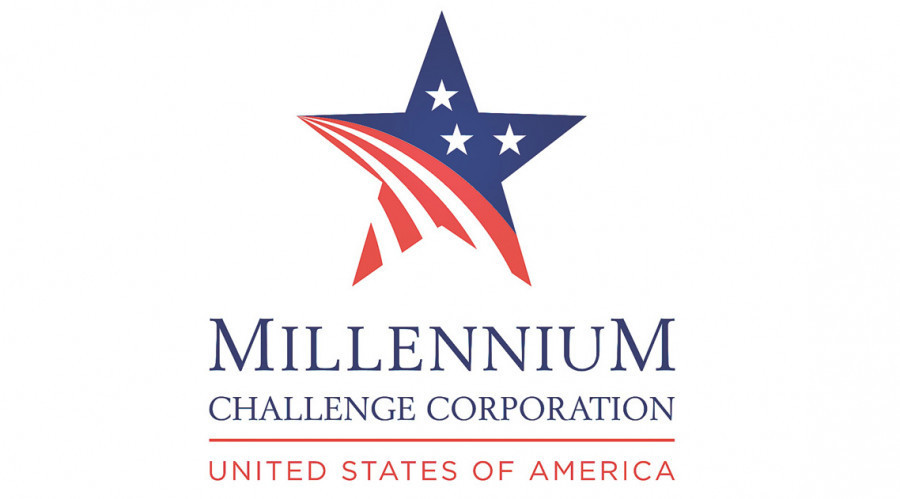National
MCC headquarters concerned over delay in compact ratification
While the US grant has become a political hot potato in Nepal, a Maoist leader says its endorsement by Parliament is unlikely before the upcoming general elections.
Anil Giri
The headquarters of the United States Millennium Challenge Corporation (MCC) has expressed concerns over the delay in parliamentary ratification of the $500 million grant to Nepal after the government prorogued parliament on Friday.
“The prorogation without ratification of the compact further delays benefits to millions of Nepali households,” the MCC headquarters said in a statement on Saturday night in Washington DC.
According to two Nepali officials, the MCC headquarters is a bit worried this time after some political parties sent separate letters to the Millennium Challenge Account Nepal Development Board asking it not to operate its offices in Kathmandu, Palpa and Makawanpur.
“We have received letters from different political parties urging us not to set up and operate offices in three districts out of eight,” an official at the MCA-Nepal said, adding, “Since parliamentary ratification is also uncertain, definitely they [US officials] are worried.”
But at the technical level, the MCA-Nepal is working in the project sites including on land acquisition, among other things.
“Until there is a political agreement, there is little possibility of Parliament convening before the end of this year so we can easily sense the unease of the Americans,” the official added.
Nepali Congress Joint General Secretary and former foreign minister Prakash Sharan Mahat said since the MCC headquarters has already clarified several concerns and questions raised from various quarters, now it is up to the Nepal government to clarify its position and ratify the compact.
In early September, the Ministry of Finance had asked the MCC headquarters to clarify some points that have been raised and questioned in the public and political spheres about the compact. Ahead of the the visit of Fatema Z Sumar, vice president of the Department of Compact Operations at the Millennium Challenge Corporation, and her deputy Jonathan Brooks to Kathmandu in the second week of September, the MCC headquarters responded to the queries but there has been no talks or further development on the subject.
“We have to clarify our position and ratify it. And we have to make our position clear too and should initiate the process to ratify the compact, we cannot leave it in limbo forever. If some political parties want amendment to the compact deal then they should clearly say what are the points they want revised. Otherwise there’s no point lingering on it,” said Mahat.
The political leadership is sharply divided over whether the federal parliament should ratify the compact or when. The MCC headquarters statement also warned that prolonged delay could jeopardise the aid.
“Coalition leaders have expressed that they understand the steps they need to take to ratify the compact, which is required under Nepal’s laws. The delays to ratification may jeopardise the critical and timely support this $500 million grant would provide to help more than 23 million Nepalis access reliable energy and safer roads,” reads the statement.
Inside the ruling coalition, the Nepali Congress and the Janata Samajbadi Party are in favour of immediate ratification while the Communist Party of Nepal (Maoist Centre) and the Communist Party of Nepal (Unified Socialist) want the compact agreement amended before its ratification.
“Parliament has been prorogued and this might have worried them. But we haven’t discussed the issue yet because the prime minister is out of the country and top leaders of the ruling alliance are out of the Capital,” Beduram Bhusal, general secretary of the CPN (Unified Socalist) said. “MCC will be discussed once the House resumes.”
There are other more pressing issues to discuss in the ruling alliance now so the MCC compact has not been the priority, said Bhusal.
Earlier during his meeting with some Nepali Congress leaders, Prime Minister Deuba had said he would discuss ratifying the MCC compact with alliance leaders before presenting it in Parliament. But Deuba has yet to consult alliance leaders on the issue.
“Now discussion on the issue has been pushed back until after Tihar,” a Nepali Congress leader close to Prime Minister Deuba said. “The prime minister will return from Glasgow [UN climate summit] on November 4, so we do not expect any discussion on MCC before the Tihar festival,” the Congress leader added.
Meanwhile, the divergence of views inside the ruling alliance and between Prime Minister Deuba and Foreign Minister Narayan Khadka with regard to the compact has also complicated its ratification, say party leaders.
Some ruling party leaders said that the MCC compact may not get ratified before the parliamentary elections because no one dares to ratify it in the wake of strong public opposition fearing electoral losses.
“The MCC compact will not be ratified before the general elections,” senior leader of the CPN(Maoist Center) Narayan Kaji Shrestha, told the Post. “Also, no one in the ruling alliance is discussing it. Who is going to ratify it, who dares to?” he asked.




 19.12°C Kathmandu
19.12°C Kathmandu














